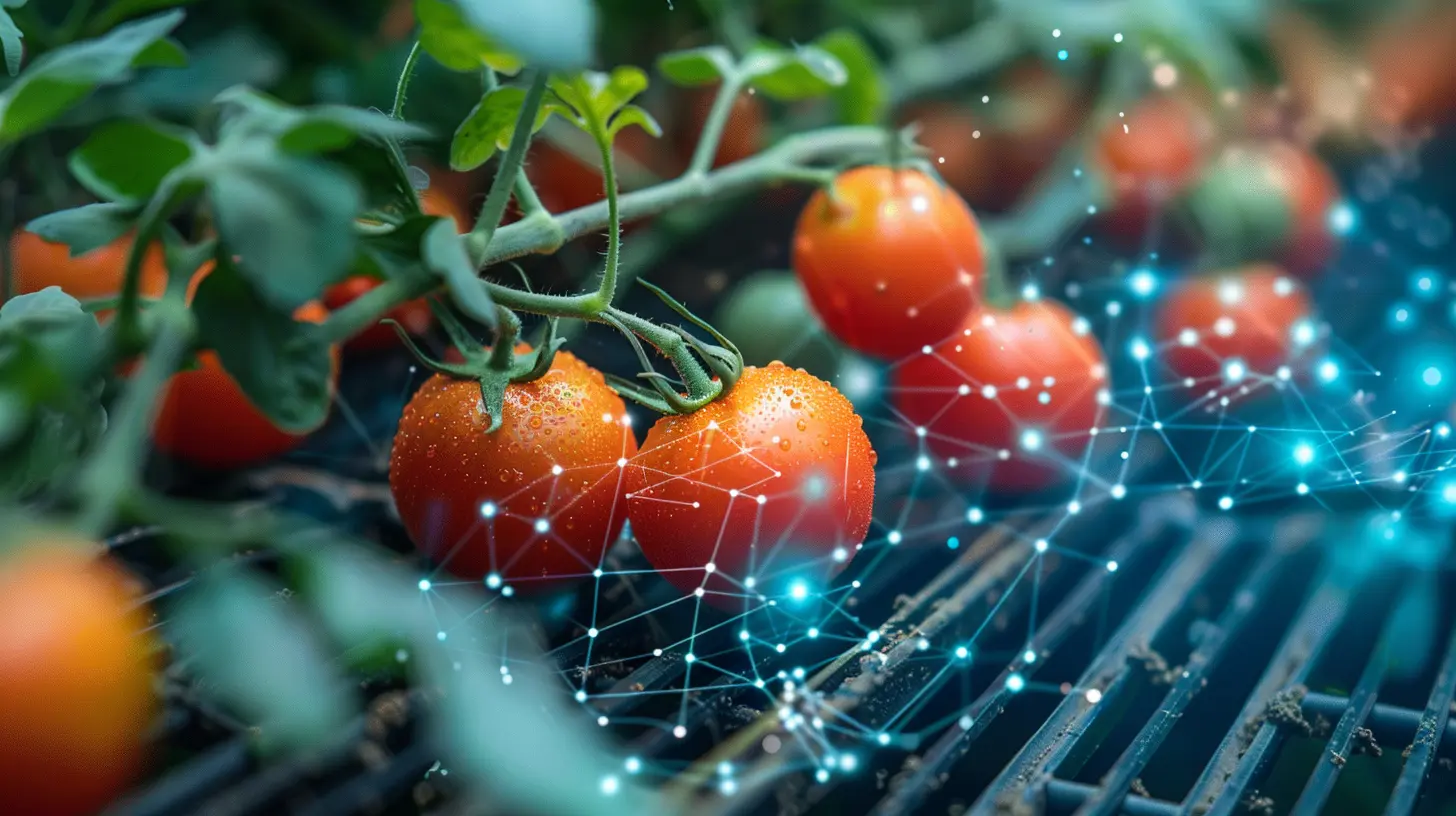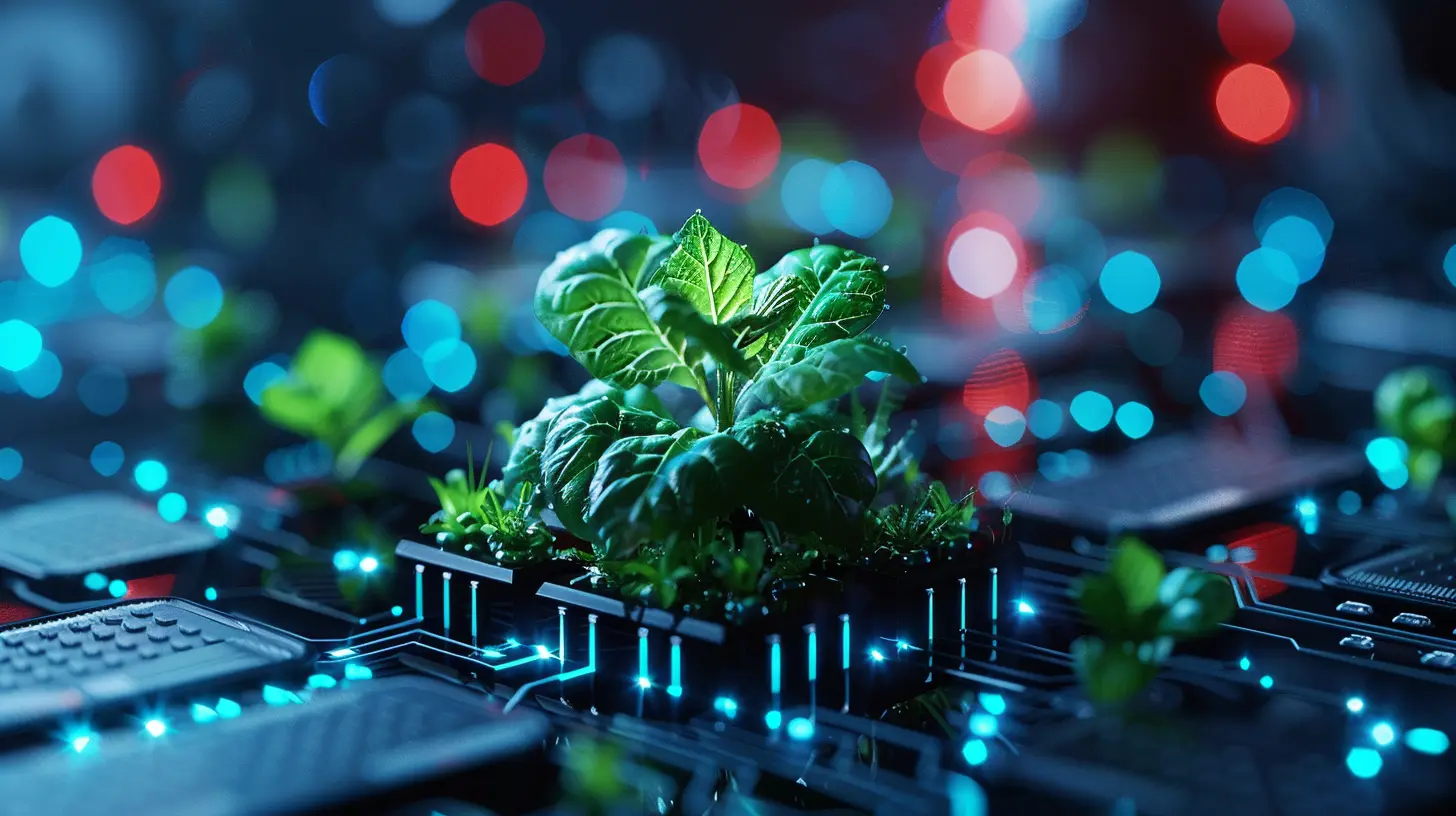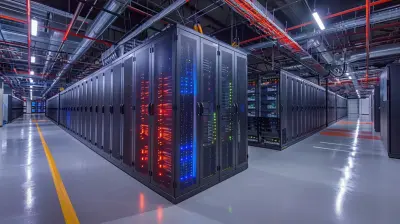Blockchain in Agriculture: Ensuring Food Safety and Traceability
1 June 2025
Technology is changing the way we grow, distribute, and consume food. One emerging innovation that’s making waves in the agricultural sector is blockchain. While most people associate blockchain with cryptocurrencies like Bitcoin, its potential reaches far beyond financial transactions. In fact, blockchain is revolutionizing food safety and traceability—helping farmers, suppliers, and consumers gain unprecedented transparency in the food supply chain.
But how exactly does blockchain fit into agriculture? And why is it a game-changer for food safety? Let’s dig in.

What Is Blockchain, and Why Should Farmers Care?
Before we dive into the nitty-gritty, let's break down blockchain in the simplest way possible. Imagine a digital ledger—one that records transactions in a secure, tamper-proof manner. Every new entry is added as a “block” and linked to the previous one, creating a “chain” of data. Once recorded, information cannot be altered or deleted.For farmers and food producers, this level of security means every step in the supply chain—from planting seeds to delivering produce to grocery stores—can be traced with absolute accuracy. Think of it as having an open book where every stakeholder can verify the authenticity of the information.
And why does this matter? Because food fraud, contamination, and inefficiencies are major problems in the industry. Blockchain is here to fix that.

The Role of Blockchain in Food Safety
Food safety is a top concern for consumers and regulators alike. We've seen outbreaks of contaminated produce, recalls of tainted meat, and the devastating consequences of unchecked supply chains. Blockchain introduces a new level of accountability that could significantly reduce these risks.1. Rapid Identification of Contaminated Food
Imagine there’s an outbreak of E. coli linked to lettuce. Traditionally, tracing the source of contamination takes weeks or even months, leading to mass recalls and unnecessary food waste. With blockchain, affected batches can be pinpointed almost instantly.Every time a product moves through the supply chain, a record is created—farming methods, handling conditions, transportation routes, and storage temperatures are all logged in real time. This means that instead of pulling every lettuce head from stores, retailers can isolate only the contaminated batches, saving money and reducing waste.
2. Eliminating Food Fraud and Counterfeiting
Did you know that some premium food products—like organic produce, grass-fed beef, and wild-caught seafood—are often counterfeited? Unscrupulous suppliers may sell falsely labeled products for higher prices, deceiving consumers in the process.Blockchain helps combat food fraud by providing verifiable proof of authenticity. Since every transaction is recorded and accessible, consumers can scan a QR code on their food products and track its journey—from farm to table. If something seems fishy, it's easy to detect where the fraud occurred.
3. Enhancing Consumer Trust and Transparency
In today’s world, people want to know exactly what they’re eating and where it comes from. Consumers are demanding more transparency in food production, and blockchain delivers just that.When food data is stored on a blockchain, consumers can access verified information about farming practices, pesticide use, ethical sourcing, and more. This creates a stronger bond of trust between buyers and producers, reassuring customers that they’re making informed choices.

How Blockchain Ensures Food Traceability
Food traceability isn’t just about knowing where food comes from—it’s about tracking every movement along the supply chain with precision. Blockchain helps streamline this process in several ways.1. Real-Time Tracking From Farm to Fork
Traditionally, supply chain information is kept in siloed systems—each participant using their own databases, leading to inefficiencies and data manipulation risks. Blockchain removes these barriers by storing everything in a single, decentralized ledger.With real-time tracking, traders, wholesalers, and retailers can see exactly where a shipment is at any given moment. This reduces losses due to spoilage, improves inventory management, and ensures that food arrives fresh.
2. Smart Contracts for Automated Compliance
One of the most powerful features of blockchain is the ability to use smart contracts—self-executing agreements with predefined conditions.For example, let’s say a farmer agrees to supply organic tomatoes to a distributor. A smart contract can automatically verify whether the tomatoes meet organic certification requirements before releasing payment. If the conditions aren’t met, the transaction doesn’t go through.
This automation removes middlemen, reduces paperwork, and enforces compliance effortlessly.
3. Reducing Supply Chain Fraud and Theft
Food theft in the supply chain is a major issue, especially for high-value products like coffee, spices, and exotic fruits. Stolen goods often re-enter the market illegally, causing financial losses and safety risks.Blockchain makes theft nearly impossible. Every product gets a digital fingerprint—a unique identifier that confirms its origin. If stolen goods appear elsewhere in the supply chain, they can be flagged instantly.

Overcoming Challenges of Blockchain Adoption in Agriculture
Of course, blockchain isn’t a magic bullet—it comes with challenges too.1. High Initial Investment
Setting up a blockchain system isn’t cheap. Farmers and small suppliers may struggle to afford the technology, software, and training required. However, as adoption increases, costs are expected to drop, making it more accessible.2. Complexity and Learning Curve
Not everyone is tech-savvy. Many farmers may find blockchain difficult to understand and implement. Education and user-friendly platforms will be key to driving widespread adoption.3. Need for Industry-Wide Collaboration
For blockchain to work effectively in agriculture, all stakeholders—farmers, suppliers, retailers, and regulatory bodies—must be on board. Without widespread participation, the full benefits of blockchain cannot be realized.The Future of Blockchain in Agriculture
Despite the challenges, blockchain is poised to transform the agricultural landscape.Governments and major food industries are already investing in blockchain-based solutions to ensure food safety and traceability.
As technology advances, we’ll likely see even more sophisticated applications, such as AI-driven predictions for crop diseases, IoT sensors for real-time farm monitoring, and blockchain-powered food certifications.
Soon, scanning a QR code will reveal everything you need to know about your food—where it was grown, who handled it, and whether it meets safety standards. This level of transparency will not only protect consumers but also empower ethical and sustainable farming practices.
Final Thoughts
Blockchain is more than just a buzzword—it’s a revolutionary tool that can solve long-standing issues in agriculture. From ensuring food safety to eliminating fraud and enhancing traceability, its benefits are undeniable.While challenges exist, the potential rewards far outweigh the hurdles. As adoption grows, blockchain could redefine the way we trust and consume food, creating a safer, more transparent food system for everyone.
So, the next time you bite into a piece of fruit, imagine a world where you can trace every step of its journey—right back to the soil it was grown in. With blockchain, that future isn’t far off.
all images in this post were generated using AI tools
Category:
Blockchain TechnologyAuthor:

Reese McQuillan
Discussion
rate this article
3 comments
Sylph McDaniel
Great insights! Blockchain's potential in agriculture is truly transforming food safety and traceability.
June 13, 2025 at 12:44 PM

Reese McQuillan
Thank you! I'm glad you found the insights valuable. Blockchain's role in enhancing food safety and traceability is indeed exciting!
Zelda McMurtry
Great insights on the potential of blockchain in agriculture! Ensuring food safety and traceability is crucial for building consumer trust and enhancing supply chain efficiency. Looking forward to more developments in this area!
June 13, 2025 at 3:22 AM

Reese McQuillan
Thank you for your encouraging feedback! I'm excited about the future developments in blockchain and its impact on food safety and traceability.
Trixie Clarke
Blockchain technology has significant potential to revolutionize agriculture by enhancing food safety and traceability. By providing immutable records of the supply chain, it enables consumers to verify the source and quality of their food. Embracing this innovation could lead to greater transparency and trust in the agricultural sector.
June 4, 2025 at 10:41 AM

Reese McQuillan
Thank you for your insightful comment! I completely agree that blockchain can significantly enhance transparency and trust in agriculture, ultimately benefiting consumers and producers alike.



